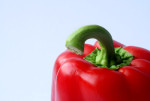
Back Pain
Lower back pain triggers: awkward positions, distractions and fatigue
 Doing manual tasks that involve awkward positions increase the risk of low back pain by eight times says a study in Arthritis Care & Research. And people who are tired or distracted when doing activities increase their risk of acute low back pain too.
Doing manual tasks that involve awkward positions increase the risk of low back pain by eight times says a study in Arthritis Care & Research. And people who are tired or distracted when doing activities increase their risk of acute low back pain too.
Nearly 10% of the world’s population experience back pain at some point. Continue reading
Positive emotion – a new anti-inflammatory?
 Positive emotions are linked to lower levels of pro-inflammatory cytokines (the proteins that signal the immune system to work harder) in research published in the journal Emotion.
Positive emotions are linked to lower levels of pro-inflammatory cytokines (the proteins that signal the immune system to work harder) in research published in the journal Emotion.
It has long been established that a healthy diet, exercise and sleep bolster the body’s defences against physical and mental illnesses. But the new findings suggest that positive emotions can be added to the list. Continue reading
Deadly nightshade foods and arthritis: urgent need for research based on strong anecdotal evidence
potatoes – tomatoes – aubergines – peppers – goji berries
• People with arthritis used to be told to eat less foods from the deadly nightshade family as a way of reducing symptoms.
• In recent years this thinking has been widely dispelled as a myth.
• There is no scientific evidence that suggests that foods from the deadly nightshade family exacerbate arthritis symptoms. But equally, there is no research concluding that they don’t.
• Bearing in mind the wealth of anecdotal evidence from people with arthritis that eliminating all (or particular) nightshade foods from their diet has made a fundamental difference to their symptoms, it is somewhat surprising that no studies have been done in the area.
• It could be that some people have individual reactions to particular foods and do see an improvement in their symptoms if they eliminate them. Perhaps some of us have genes that make us more susceptible to the effects of solanine, or another component of deadly nightshade plants. Why wouldn’t experts put deadly nightshade plants to the test in light of all the anecdotal evidence in the area? Continue reading
First evidence of neuroinflammation in brains of chronic pain patients

Images created by averaging PET scan data from chronic pain patients (left) and healthy controls (right) reveals higher levels of inflammation-associated translocator protein (orange/red) in the thalamus and other brain regions of chronic pain patients
Scientists have found evidence of neuroinflammation in key regions of the brains of people with chronic pain, they report in Brain. The findings could pave the way for new treatment strategies and may lead to a way of measuring the presence and intensity of pain.
A total of 10 people with chronic lower back pain were compared with nine healthy people who were carefully matched for age, sex and genetic characteristics. Their brains were scanned.
Levels of a particular protein were found to be significantly higher in the brains of people with chronic back pain. Continue reading
Men self-manage arthritis better if masculine identity is not threatened
 Self-management support is better received by men with long-term health issues such as arthritis if it does not threaten aspects of masculine identity, says research in BMC Public Health.
Self-management support is better received by men with long-term health issues such as arthritis if it does not threaten aspects of masculine identity, says research in BMC Public Health.
A review of the current research evidence was carried out to see if certain types of support are more appealing and accessible to men with long-term health conditions such as arthritis. Continue reading




